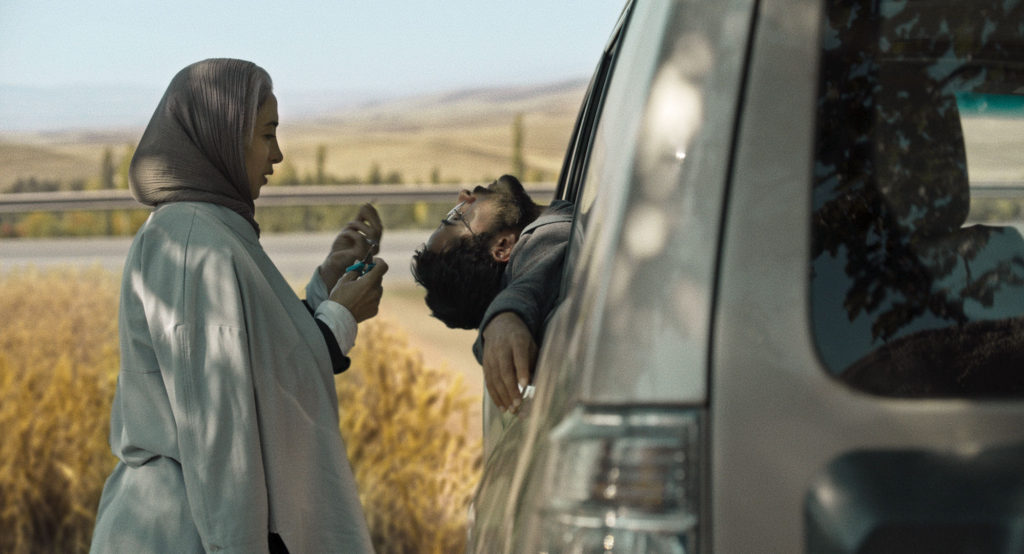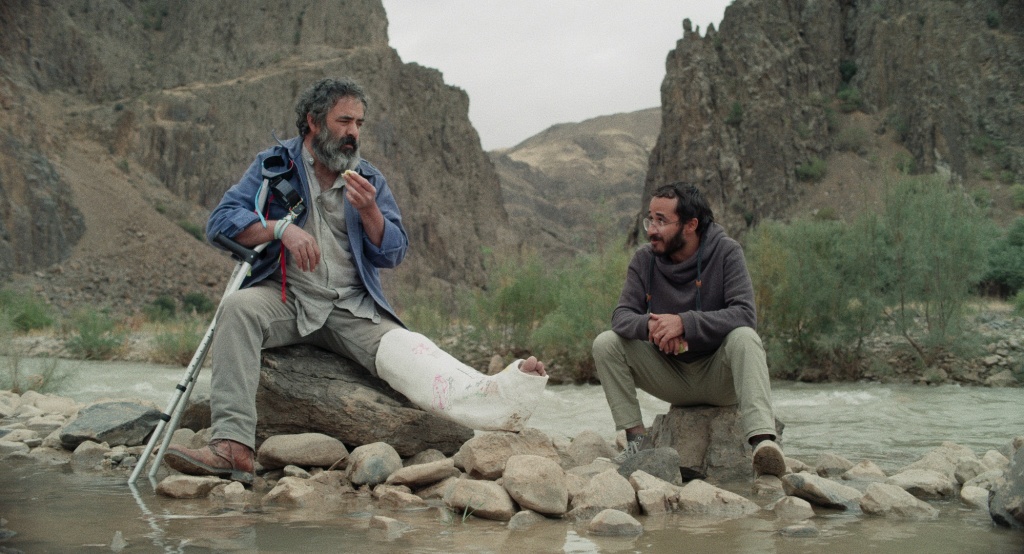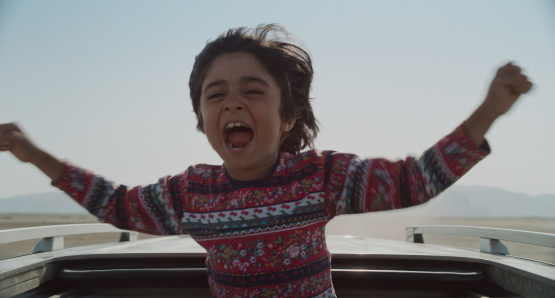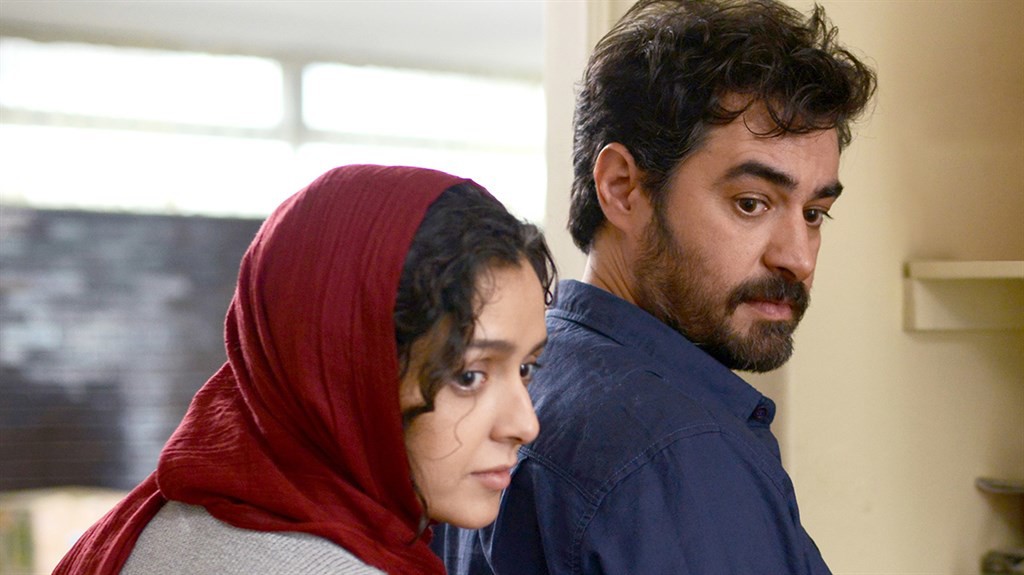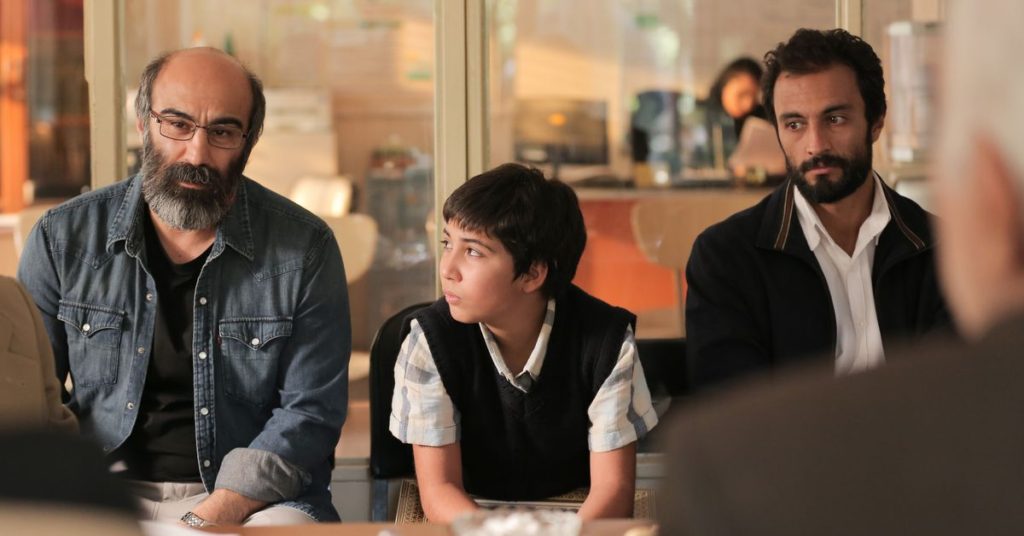
In A Hero, the latest from Iranian auteur Asghar Farhadi, Rahim (Amir Jahidi) finds himself entangled in a Kafkaesque web of Iranian law and social convention. To start with, Rahim is in debtor’s prison. That’s right – Rahim’s creditor has him incarcerated so he can’t work to pay off his debt. Of course, the creditor is Rahim’s ex-brother-in-law (Mohsen Tanabandeh), who seems to prefer ruining Rahim’s life to being repaid.
Rahim gets a two-day pass, so the clock is ticking – Rahim must get his creditor’s sign-off in his 48 hours of freedom, or he goes back to the slammer. Rahim’s secret girlfriend Farkondeh (Sahar Goldust) happens on a lost purse with gold coins, but fluctuations in the gold market mean that the trove isn’t enough to pay off the debt anyway.
[MILD SPOILER IN THIS PARAGRAPH}. In any case, Rahim feels sorry for whoever lost the gold coins, so he finds a way to return them. The absurdity of a guy in debtor’s prison returning some gold that he found fair and square is noted by the prison authorities, who call in the TV news crews for a Feel Good story. In his 15 minutes of celebrity, everything is lining up to help Rahim to collect donations and pay off enough of his debt to avoid reincarceration..
Unfortunately, the creditor ex-brother-in-law is so bitter that he won’t play along. Then Rahim’s luck turns bad and things start spinning out of control. Traditional family honor makes things worse.
Rahim’s young son (Saheh Karimai ) accompanies him throughout much of Rahim’s two-day dash and witnesses his dad’s indignities and desperation – a particularly poignant aspect of A Hero.
Jahidi delivers a fine performance as the lead, and excels at portraying Rahim’s sense of resignation.
Farhadi, perhaps the world’s leading master of the family psychological drama, does not make Feel Good movies. That’s because he makes the audience care so much about his characters that we ache along with them. The payoff is that Farhadi delivers genuine human behavior and authentic human emotion.
I summarized his Oscar-winning film A Separation, which as “brilliant film/tough to watch”. That movie and his The Past and The Salesman all reflect life at its messiness – especially how life resists our desire to make everything tidy and symmetrical.
Those previous Farhadi films are more universal than A Hero, which is very specific to Iranian institutions and customs that Farhadi is criticizing. There would be no plot at all if this were set in a Western nation – Rahim would just get an on-line loan to refinance his debt – and he would never see the inside of a prison. I found A Hero two steps down from his other work – the payoff doesn’t justify the squirming.
Farhadi is highly admired by the Academy of Motion Pictures, which loves to jab at the oppressive Iranian government by praising Farhadi, so it is telling that A Hero was NOT nominated for the Best International Picture Oscar.
A Hero is streaming on Amazon (included with Prime).

